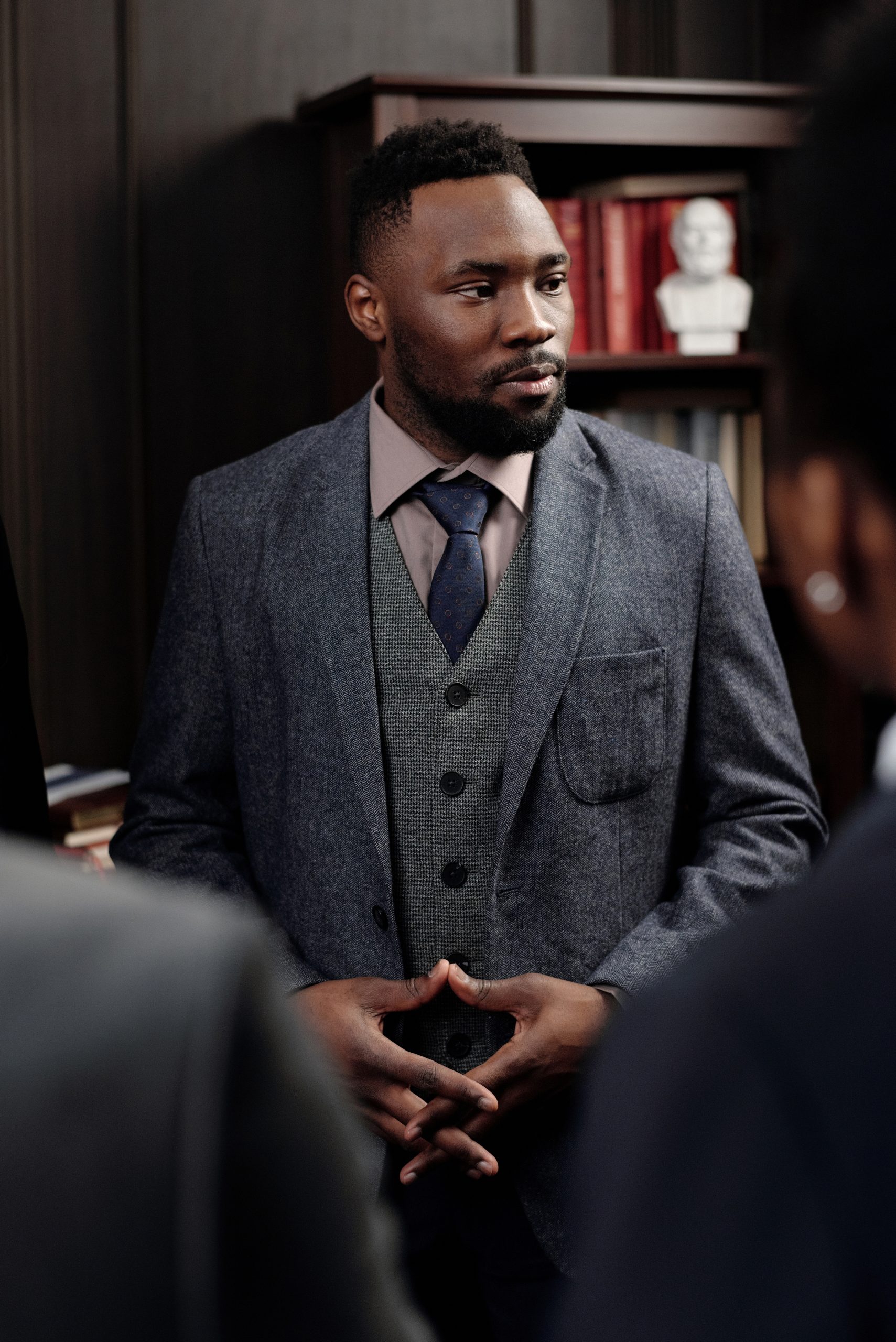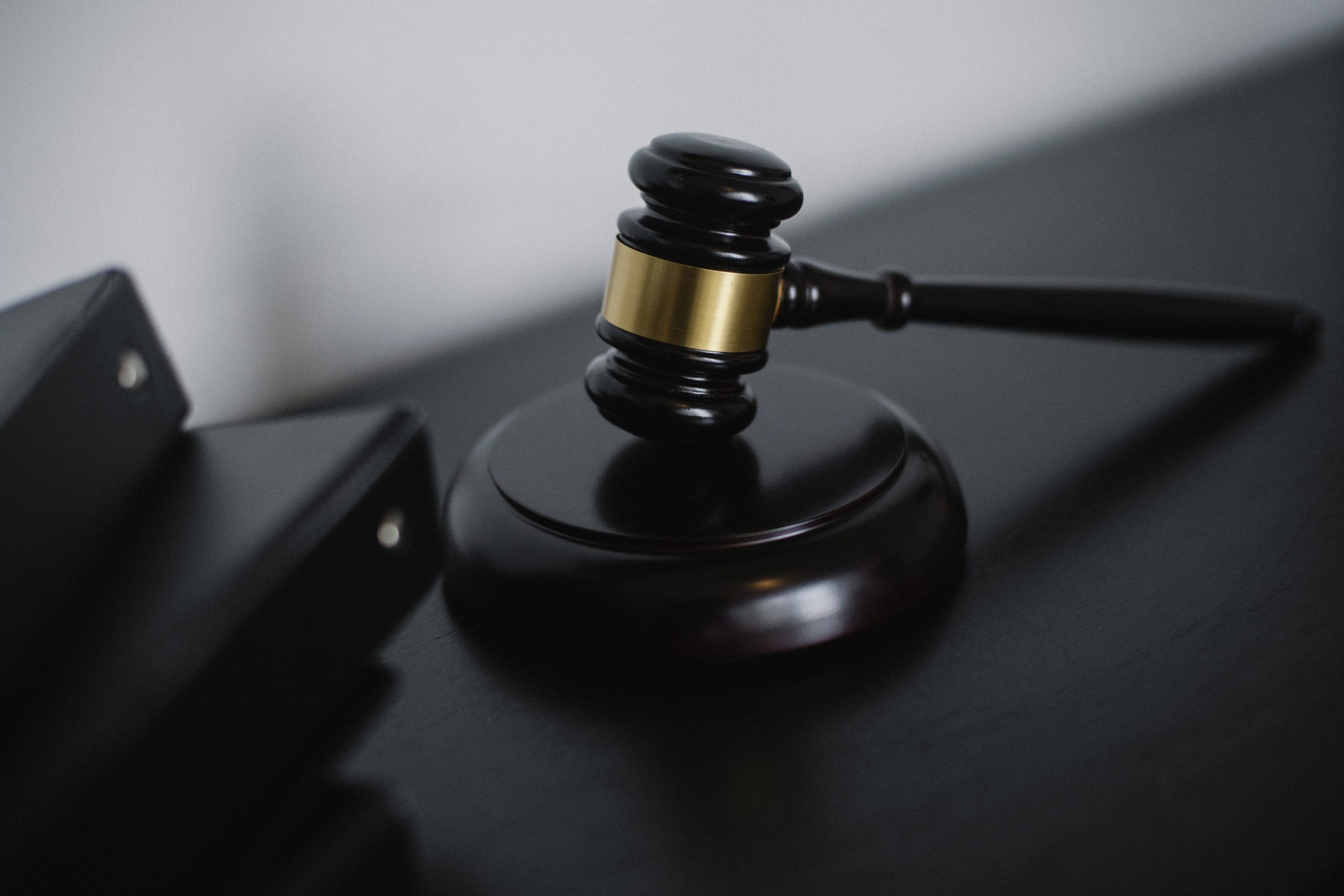When faced with product liability claims in Utah, it is vital to approach the situation with utmost professionalism and legal expertise. Understanding the intricate process of responding to such claims is crucial to protect both your business reputation and financial interests. This article will guide you through the necessary steps and considerations involved in effectively responding to product liability claims in Utah. By adhering to these practices, you can confidently navigate the legal complexities and ensure the best possible outcome for both your business and clients.

Step 1: Understand the Basics of Product Liability Claims
What is Product Liability?
Product liability refers to the legal responsibility of manufacturers and sellers for any damages or injuries caused by their products. When a consumer suffers harm due to a defective or dangerous product, they may be entitled to compensation through a product liability claim. These claims can arise from defects in design, manufacturing defects, or inadequate warnings or instructions.
Types of Product Liability Claims
There are several types of product liability claims that can be pursued based on the specific circumstances of the case:
-
Manufacturing Defects: These claims arise when a product deviates from its intended design during the manufacturing process, making it dangerous or defective.
-
Design Defects: In design defect claims, the entire line of products is inherently dangerous due to a faulty design. Manufacturers can be held liable if they failed to use a reasonable alternative design that would have made the product safer.
-
Failure to Warn: These claims arise when a product lacks proper warnings or instructions, and the absence of such warnings leads to harm for the consumer.
Burden of Proof in Product Liability Cases
In product liability cases, the burden of proof lies with the plaintiff, who must demonstrate the following elements to establish their claim:
- The product was defective or dangerous.
- The defect caused the injuries or damages suffered by the plaintiff.
- The product was being used as intended or in a reasonably foreseeable manner at the time of the incident.
- The plaintiff suffered actual harm or damages as a result of the defect.
It is important to consult with an experienced product liability attorney to understand the specific laws and legal standards applicable to your case.
Step 2: Gather and Preserve Evidence
Document the Incident
When responding to a product liability claim, it is crucial to document the incident in detail. This includes gathering witness statements, taking photographs or videos of the product and the scene of the incident, and noting any relevant dates, times, and conditions surrounding the event. This documentation will help provide a clear and accurate account of what occurred.
Collect Relevant Documents
Obtaining and organizing all pertinent documents related to the product and the incident is vital for building a strong defense. These documents may include purchase receipts, warranties, instruction manuals, product specifications, and any previous complaints or recalls associated with the product. Your attorney can assist you in identifying and collecting these documents.
Preserve the Product and Other Evidence
Preserving the product and any other evidence involved in the incident is crucial. It is essential to keep the product in its current state and avoid making any modifications or alterations. This will help ensure that the product can be examined by experts, if necessary, and will prevent accusations of tampering with the evidence.
Step 3: Consult with an Experienced Product Liability Attorney
Benefits of Hiring an Attorney
When facing a product liability claim, it is highly recommended to consult with an experienced product liability attorney. An attorney can provide valuable guidance and legal expertise throughout the process, ensuring that your rights are protected and that you have the best chance of a favorable outcome. Some benefits of hiring an attorney include:
-
Expertise in product liability laws: Product liability laws can be complex, and an attorney who specializes in this area will have an in-depth understanding of the applicable legal principles and standards.
-
Investigation and evidence gathering: An attorney will thoroughly investigate the case, gather evidence, and consult with experts when necessary to build a strong defense.
-
Negotiation and litigation skills: An experienced attorney will have the negotiation skills required to engage in settlement discussions with the opposing party. If a settlement cannot be reached, they can also represent you in court and litigate the matter on your behalf.
Find a Knowledgeable Product Liability Lawyer in Utah
When searching for a product liability lawyer in Utah, it is essential to find someone with relevant experience and a track record of success in handling product liability cases. Look for an attorney who specializes in this area of law and has a deep understanding of the local regulations and court procedures. Additionally, consider their reputation, client testimonials, and any relevant certifications or awards they may hold. Consulting with multiple attorneys and scheduling initial consultations can help you find the right attorney for your specific needs.
Step 4: Determine Liability and Damages
Identify Potentially Liable Parties
In product liability cases, it is important to determine the parties that may be held liable for the injuries or damages caused by the defective product. This can include the manufacturer, distributor, retailer, or any other entity involved in the production and distribution chain. A thorough investigation by your attorney will help identify the responsible parties and establish their connection to the defective product.
Evaluate the Strength of the Claim
Assessing the strength of your product liability claim involves a careful examination of the evidence and legal standards applicable to the case. Your attorney will evaluate various factors, such as the severity of the injuries, the extent of the defect, and the foreseeability of the harm caused. This evaluation will help determine the viablilty of your claim and the potential damages you may be entitled to.
Assess the Damages
Damages in product liability cases can include both economic and non-economic losses. Economic damages may cover medical expenses, lost wages, property damage, and any other financial losses directly resulting from the incident. Non-economic damages may include pain and suffering, emotional distress, and loss of enjoyment of life. Your attorney will work with you to calculate and assess the damages you have suffered, ensuring that you seek fair compensation.
Step 5: Respond to the Claim
Notify Your Insurance Company
If you receive a product liability claim, it is crucial to promptly notify your insurance company. Most commercial general liability policies provide coverage for product liability claims, and your insurer will likely have specific procedures that must be followed. Failure to notify your insurance company in a timely manner may result in the denial of coverage, so it is essential to act quickly.
Draft a Response to the Claim
Working closely with your attorney, you will be guided in drafting a response to the product liability claim. Your response should address each allegation made by the claimant and provide a clear and factual account of the incident. It is important to avoid making any admissions of liability or expressing unnecessary sentiment. Your attorney will ensure that your response is properly formatted and adheres to legal standards.
Negotiate or Litigate
After the initial response, the next steps will depend on the specific circumstances of the case. In some instances, negotiations may commence between your attorney and the claimant’s legal representation to potentially reach a settlement. Settlement negotiations aim to resolve the matter efficiently and avoid the costs and uncertainties associated with litigation. If a settlement cannot be reached, your attorney will proceed with litigation and represent you in court.
Step 6: Preserve the Attorney-Client Privilege
Communicate Privately with your Attorney
Maintaining confidentiality and privileged communication with your attorney is critical throughout the product liability claim process. Any discussions or information shared with your attorney about the case should be treated as confidential. This protection allows for open and honest communication, ensuring that you have a strong legal strategy and the best chance of a successful outcome.
Exercise Caution in Communicating about the Case
It is essential to be cautious in discussing the product liability claim with anyone other than your attorney. Avoid making statements or providing information that could be detrimental to your case. This includes refraining from posting on social media or discussing the case with individuals who may have conflicting interests. Your attorney will guide you on what information can be safely disclosed and when it is appropriate to do so.

Step 7: Consider Alternative Dispute Resolution
Mediation
Mediation is an alternative dispute resolution process where a neutral third-party mediator facilitates negotiations between the parties involved in a product liability claim. The mediator assists in clarifying the issues, identifying common ground, and finding a mutually agreeable resolution. Mediation provides an opportunity for both parties to actively participate in the decision-making process and can be a more cost-effective and efficient alternative to litigation.
Arbitration
Arbitration is another form of alternative dispute resolution that involves a neutral arbitrator who listens to the arguments and evidence presented by both parties and makes a binding decision. Unlike mediation, where the mediator assists in facilitating a resolution, arbitration results in a final decision made by the arbitrator. The decision reached in arbitration is enforceable and generally cannot be appealed.
Benefits of Alternative Dispute Resolution
Engaging in alternative dispute resolution methods such as mediation or arbitration can offer several benefits, including:
-
Cost and time-efficiency: Alternative dispute resolution methods often reduce the cost and time associated with traditional litigation.
-
Confidentiality: The proceedings in alternative dispute resolution are generally confidential, protecting sensitive business information from becoming public record.
-
Control over the outcome: Parties involved in alternative dispute resolution have more control and input in deciding the outcome of the case, as opposed to leaving the decision solely in the hands of a judge or jury.
-
Preservation of business relationships: Mediation and arbitration allow parties to work together to find a resolution, which can help preserve business relationships, especially if the parties need to continue doing business in the future.
Step 8: Maintain Communication and Updates
Stay in Regular Contact with your Attorney
Maintaining open lines of communication with your attorney is essential throughout the product liability claim process. Regular updates and discussions regarding the progress of the case, any new developments, and any potential strategies or decisions being made will help ensure that you are fully informed and involved in the process. Your attorney will keep you updated on any important deadlines or actions required from your side.
Keep Track of Any Developments or Changes
As the product liability claim progresses, it is crucial to keep thorough records of any developments or changes related to the case. This includes preserving all communication, document exchanges, and any written agreements reached during the negotiation or mediation process. These records serve as valuable evidence and can help support your position if the claim proceeds to trial or appeal.

Step 9: Prepare for Trial, if Necessary
Engage in Discovery
Discovery involves exchanging information and evidence between the parties involved in a product liability claim. This process allows each side to request and obtain relevant documents, depose witnesses, and gather information that will be used to build their case. Your attorney will guide you through the discovery process, ensuring that all necessary evidence is gathered and properly documented.
Develop a Strong Legal Strategy
Preparing for trial involves developing a strong legal strategy to present your case effectively. This includes analyzing the strengths and weaknesses of your claim, identifying potential defenses, and determining the most persuasive arguments to present to the court. Your attorney will work closely with you to develop a strategy that aligns with your goals and maximizes your chances of a favorable outcome.
Prepare Witnesses and Expert Testimony
Witnesses and expert testimony can play a crucial role in a product liability trial. Your attorney will help identify and prepare witnesses who can provide relevant testimony to support your case. Additionally, if expert testimony is required to establish the defective nature of the product or explain complex technical aspects, your attorney will engage qualified experts who can provide credible and persuasive opinions.
Step 10: Reach a Resolution
Settlement Negotiations
Throughout the product liability claim process, settlement negotiations may occur at various stages. Settlement negotiations aim to reach a mutually agreeable resolution without the need to proceed to trial. Your attorney will represent your best interests during these negotiations, working to secure a fair settlement that adequately compensates you for your injuries or damages.
Trial Verdict or Judgment
If a settlement cannot be reached, the case will proceed to trial. During the trial, each party will present their arguments and evidence, and the judge or jury will determine the outcome. The verdict or judgment will determine whether the defendant is liable for the injuries or damages suffered and the extent of the damages to be awarded.
Appeals
Following a trial verdict or judgment, either party may choose to pursue an appeal if they believe there were errors or issues in the trial process that affected the outcome. Appeals involve presenting arguments to a higher court, seeking to have the trial decision overturned or modified. Appeals can be complex, and it is essential to work closely with an experienced attorney who is skilled in appellate procedures.
Overall, successfully responding to a product liability claim requires a comprehensive understanding of the legal process, diligent evidence-gathering, and strategic decision-making. By following these steps and working closely with an experienced product liability attorney, you can navigate the complexities of the legal system and protect your rights and interests.
Frequently Asked Questions (FAQs)
- Can I respond to a product liability claim without hiring an attorney?
While it is possible to respond to a product liability claim without hiring an attorney, it is highly recommended to consult with an experienced product liability attorney. Product liability cases can be complex, requiring a deep understanding of the applicable laws and legal standards. An attorney can provide valuable guidance, protect your rights, and increase your chances of a favorable outcome.
- How do I find the right product liability lawyer in Utah?
To find the right product liability lawyer in Utah, consider factors such as their experience in handling product liability cases, their knowledge of local regulations, their reputation, and client testimonials. Seek out attorneys who specialize in product liability law and have a proven track record of success. Scheduling initial consultations and meeting with multiple attorneys can help you find the attorney who best meets your needs.
- What damages can I seek in a product liability claim?
In a product liability claim, you may be eligible to seek both economic and non-economic damages. Economic damages may include medical expenses, lost wages, property damage, and any other financial losses resulting from the incident. Non-economic damages may include pain and suffering, emotional distress, and loss of enjoyment of life. An experienced attorney will work with you to assess and seek fair compensation for the damages you have suffered.
- Is alternative dispute resolution a better option than litigation for product liability claims?
Alternative dispute resolution methods, such as mediation and arbitration, can offer several benefits over traditional litigation. These methods are often more cost and time-efficient, provide confidentiality, and allow for greater control in resolving the dispute. However, the best approach will depend on the specific circumstances of your case, and it is recommended to consult with an attorney to determine the most suitable course of action.
- What happens if the product liability claim goes to trial?
If a product liability claim goes to trial, both parties will present their arguments and evidence to the judge or jury. The judge or jury will then determine whether the defendant is liable for the injuries or damages suffered and the extent of the damages to be awarded. If either party disagrees with the trial verdict, they may have the option to pursue an appeal, depending on the applicable legal procedures.